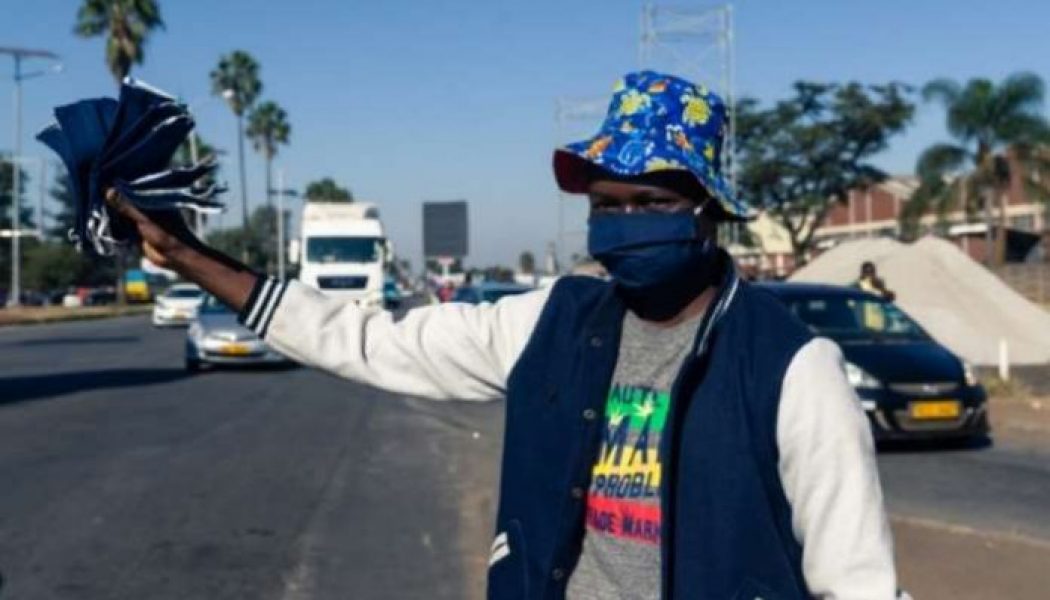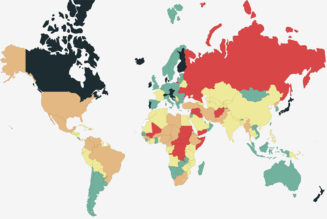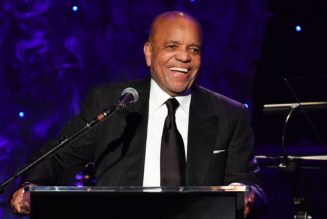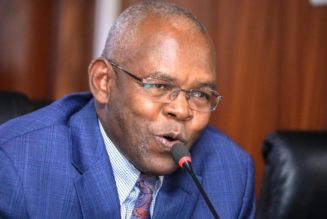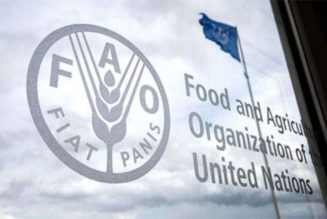
Zimbabwe market stall owner Aaron Makaya saw a new business opportunity when President Emmerson Mnangagwa made face masks mandatory in public places to prevent the spread of coronavirus.
The 21-year old had been stuck at home in the capital Harare and living off meagre savings since the start of a nationwide lockdown at the end of March.
Confinement measures were extended by two weeks on May 1 – another month without income for informal workers like Makaya.
Meanwhile, factory-made face masks turned out to be unaffordable for most in a country crippled by poverty and hyperinflation.
Makaya and other informal workers jumped on the opportunity to make money by sewing and selling cheaper cloth masks at intersections.
“We started selling these masks on Monday when we noticed that people intending to board buses were being turned away,” said Makaya, standing on the side of the road with a stock of brightly coloured masks.
“We are selling for 15 bond (around $0.6). People are buying because they are afraid of being arrested in town.”
Factory-made masks cost between $1 and $2 in Zimbabwe. But those caught outside without a face covering are fined and risk a beating by security forces.
Sharing face masks
Some people have been sharing face masks as a result.
Others keep masks dangling below their chin and pull them over their mouth and nose at the sight of police officers.
“It seems most people are wearing the masks for the wrong reason,” said Harare resident Wright Chirombe.
“They are doing it more out of fear of arrest than for their own safety.”
In a makeshift factory in the Harare suburb of Mbare, the air is filled with the whirring sound of sewing machines as five tailors worked around the clock to meet growing demand.
“We only started sewing these now because of the coronavirus,” said tailor James Munhenzva. “I can sew up to 200 masks per day but there is a shortage of material.”
Munhenzva said most of his clients were farmers coming to the city to sell their crops, as well as informal street vendors.
“During this time of the coronavirus, selling these masks is helping me make a considerable income,” said Makaya, who will not be able to reopen his stall until the lockdown is lifted.
So far Mnangagwa has only allowed large corporations to open under strict conditions, while large gatherings including weddings and churches remain banned.
Zimbabwe has reported just 34 cases of coronavirus to date, including four deaths.
A gradual easing of restrictions is expected from May 18.
